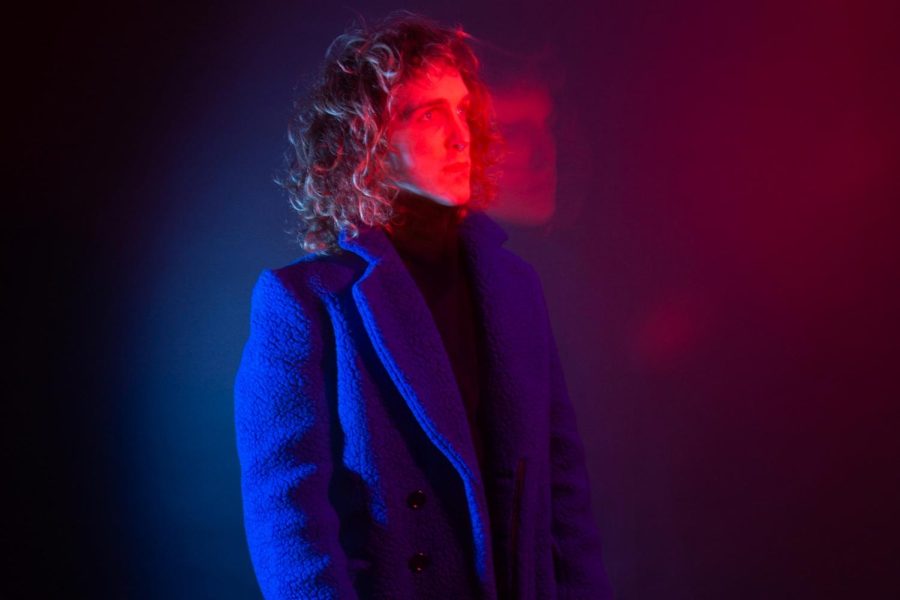Felly brings dynamicism, new album to Chicago
Photo courtesy of Nicolas Corradi
Artist Christian Felner talks about his latest album, “Young Fel 2,” and thoughts on going back on tour. Felner’s tour “Rush of Road” began on Feb. 15.
Feb 21, 2022
For artists like Christian Felner, the standard cycle of writing albums and going on tour was almost as natural as breathing – until COVID-19 hit.
But last week, Felner kicked off his “Rush of the Road” tour, beginning with his Feb. 15 show at Hawthorne Theatre in Portland, Oregon. It’s his first tour in two years.
Felner, known professionally as Felly, released his latest album, “Young Fel 2,” last October. It’s a sequel to his 2016 “Young Fel” debut extended play.
Felner said his youth is a major theme in “Young Fel 2.”
“Youth is just like the heart of that,” Felner said. “Having a lot of time with yourself and just kind of seeing why you’re the way you are, and I just feel like it’s a good time to, you know, take a look back at my youthfulness.”
Get The Daily Illini in your inbox!
Releasing “Young Fel 2” and going on tour is almost like a “cyclone of emotions,” Felner said.
“I think fans are down for the ride, too, because they’re realizing they’re dynamic,” Felner said. “Human beings aren’t just one way.”
Felner’s shows have a kaleidoscope-like range, making audiences dance at times and cry at others.
“So at my show, you’ll get that moment where you’re dropping a tear,” Felner said. “And you’ll get that moment where you’re moshing, and you’ll get that moment where you’re laughing. You know, like I want to do all those things because I think that’s human, you know?”
In his “WAVES” mini-documentary, the indie-alt hip-hop artist described his past cycle of writing an album and going on tour, then writing another album and going on another tour, and so on.
When shows were canceled after COVID-19 hit, Felner said he and other artists were asking, “What would you do if you didn’t really feel like anyone was listening?”
The lack of tours and concerts felt similar to being alone on an island, Felner said, which made him ask himself questions like, “What matters to me?” and “What do I care about?”
As he prepares to go on tour, Felner said his new perspective on music and touring has a new dynamic, saying it would be different if he had “just kept going and never taken a second to look at what we’re actually doing.”
His self-reflection during quarantine taught him how to be more patient and deal with situations in a healthier way, he said.
“You want to go down new roads,” Felner said, “So trying to take a more healthy approach, more mindfulness toward this. Like, try to do this s— right and try to do it so we have some longevity. We don’t just burn out.”
Felner said he is eager to go on his “Rush of the Road” tour.
“I’m ready to see how people grew,” Felner said. “And I’m ready to show people how I grew.”
He said he particularly looks forward to his shows in the Pacific Northwest. He’s also excited to play in Los Angeles, Dallas and Salt Lake City.
“I just like places that have cool, weird vibes,” Felner said. “It makes the show a little different.”
On Mar. 12, Felner will be playing at the Avondale Music Hall in Chicago.
Felner said his past Chicago audiences had a “youthful, crazy energy,” but he’s excited to see how his fans have matured since the last time he’s seen them.
“It’s almost like our own little anthropology experiment,” Felner said. “You get to, like, watch young kids grow up, and you see how they change and interact with them.”
He winds down after shows by consuming melatonin and magnesium, taking deep breaths and listening to chill music.
“After a show, you’re lit up by energy, so you need to, like, make sure you can decline,” Felner said.
Some of his favorite artists to listen to are Bon Iver, Bob Dylan and Red Hot Chili Peppers.
Felner said he hopes his music gives listeners a brief moment of freedom from their daily lives. It’s important for him to show vulnerability in his music, he said, saying, “It’s just something you got to do.”
He compared vulnerability to visiting someone’s house, saying artists are like hosts. If a host isn’t welcoming and makes people uncomfortable, then people won’t want to stick around.
The same goes with artists, he said. If artists aren’t open and vulnerable, then listeners won’t want to stick around.
“Artists, you know, we need this; we need people to listen,” Felner said. “So, it’s quite easy to turn off an artist, and so we kind of have to invite the listener in. And I think vulnerability does that.”






